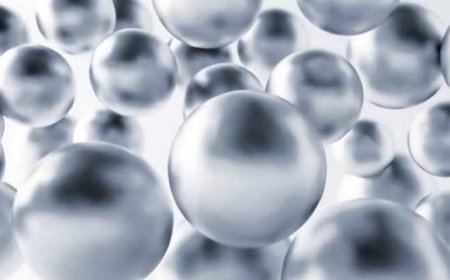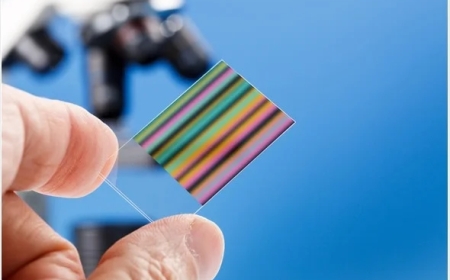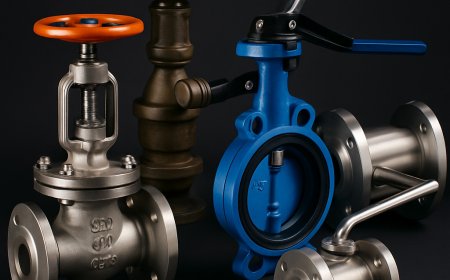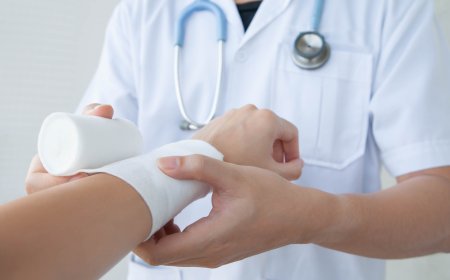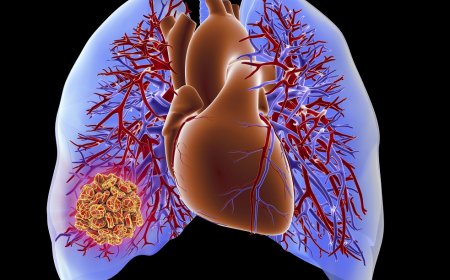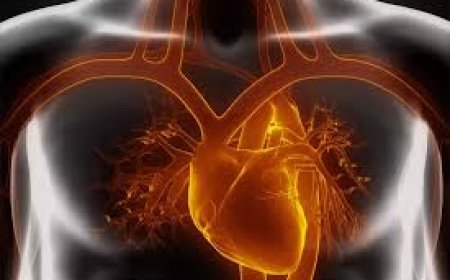Sports Massage in Boston: A Guide to Recovery and Performance Enhancement
Sports Massage in Boston is particularly beneficial for anyone involved in physical activities such as running, cycling, weightlifting, or even yoga
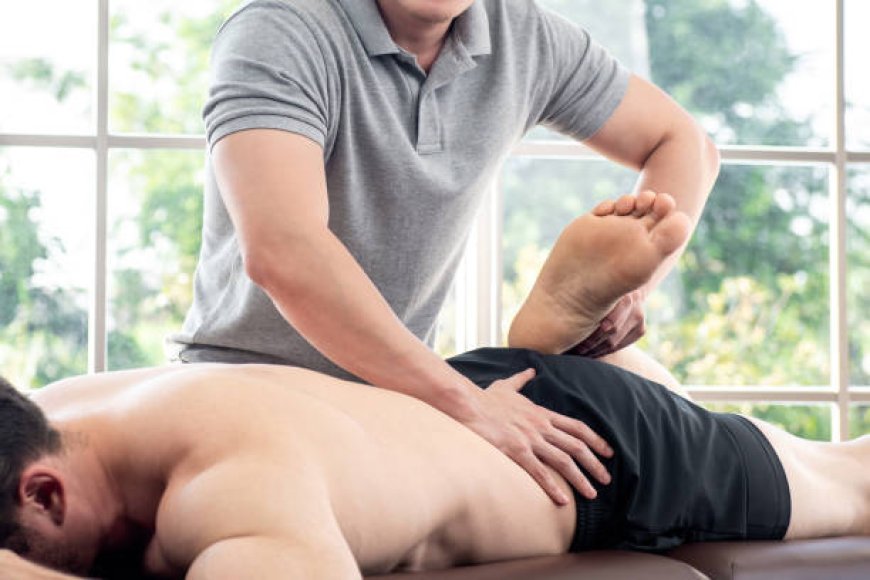
In todays fast-paced world, athletes and fitness enthusiasts are always on the lookout for effective ways to recover and enhance their performance. One highly beneficial method gaining traction is Sports Massage. If you're an athlete or someone engaging in intense physical activity, a Sports Massage in Boston might be just what you need to maximize your potential. This specialized form of massage therapy is designed to address the needs of athletes, helping them recover from injury, relieve muscle tension, and improve flexibility.
What is Sports Massage?
Sports massage is a therapeutic technique that focuses on manipulating the muscles and soft tissues to aid in physical recovery and prevent injury. Unlike traditional massage, sports massage is specifically targeted to meet the demands of athletes, focusing on areas that experience the most strain. Whether youre recovering from an intense workout or preparing for a big game, sports massage can help your body perform at its peak.
Sports Massage in Boston is particularly beneficial for anyone involved in physical activities such as running, cycling, weightlifting, or even yoga. By incorporating various techniques like deep tissue massage, trigger point therapy, and stretching, a qualified sports massage therapist can address specific muscle groups and improve your athletic performance.
Why Choose Sports Massage in Boston?
Boston is home to numerous world-class facilities and skilled professionals who specialize in Sports Massage. Whether you're training for a marathon or engaging in your weekly fitness routine, a sports massage therapist in Boston can tailor the session to your unique needs. Here are several reasons why choosing Sports Massage in Boston might be the best decision for your health and fitness goals:
1. Enhanced Recovery
After a strenuous workout, the bodys muscles may become tight and sore. Sports massage helps to alleviate these issues by improving blood circulation and breaking down muscle knots. In Boston, therapists are well-trained to provide deep tissue techniques that target deep muscle layers, promoting faster recovery and reduced muscle stiffness.
2. Injury Prevention
Sports massage isnt just about recovery; it can also help in preventing injuries before they happen. Regular massage helps maintain flexibility, improves posture, and strengthens muscles, making the body less prone to strain and injury. For athletes in Boston, this is especially crucial for preventing overuse injuries, which are common among active individuals.
3. Increased Flexibility and Mobility
One of the most important aspects of athletic performance is flexibility. Sports massage increases the range of motion in muscles and joints, making it easier for athletes to perform at their best. In Boston, therapists often use stretching techniques in combination with massage to increase mobility and flexibility, which is essential for all types of sports.
4. Stress Relief and Mental Clarity
Sports massage isn't just for the muscles; it can also help in reducing mental stress and anxiety. By releasing tension in the body, sports massage encourages relaxation, helping athletes feel more focused and clear-headed. This psychological boost is essential for anyone engaged in sports or high-performance activities.
How Does Sports Massage Work?
Sports massage works by using a combination of techniques to target specific muscle groups. These techniques may include:
1. Deep Tissue Massage
Deep tissue massage focuses on the deeper layers of muscle tissue to break up muscle adhesions and release chronic tension. Its highly effective for athletes dealing with muscle tightness and soreness, especially after rigorous physical activity.
2. Trigger Point Therapy
Trigger point therapy involves applying pressure to specific points in the muscles where tension has built up. These pressure points are often referred to as knots, and by working on them, sports massage therapists can help release the tension and promote healing.
3. Swedish Massage
Swedish massage uses long, flowing strokes to increase circulation and relax the muscles. While not as deep as other techniques, Swedish massage can be an excellent way to alleviate muscle fatigue and improve relaxation.
4. Myofascial Release
Myofascial release focuses on stretching the fascia, the connective tissue that surrounds muscles. This technique helps in increasing flexibility and reducing muscle pain.
Benefits of Sports Massage in Boston
1. Recovery from Intense Workouts
For athletes in Boston, recovery is essential to maintaining peak performance. Sports massage speeds up the bodys natural recovery processes by enhancing circulation, reducing muscle tension, and increasing flexibility.
2. Pain Relief
Whether its a recent injury or chronic muscle pain, sports massage can help ease discomfort. The techniques employed by sports massage therapists help relieve pain and promote healing by stimulating the body's natural painkillers, such as endorphins.
3. Improved Circulation
Sports massage encourages better blood flow, which helps to deliver oxygen and nutrients to muscles more effectively. This can reduce fatigue and help athletes recover faster.
4. Better Posture
Sports massage can also help improve posture by addressing imbalances in muscle tension. For athletes who tend to favor one side of the body or have poor posture due to repetitive motion, sports massage can help correct these issues and prevent long-term injury.
Sports Massage vs. Regular Massage: Whats the Difference?
Many people assume that all massages are the same, but sports massage is different from a regular or Swedish massage in several key ways:
-
Focus: While a regular massage is designed for relaxation and general well-being, sports massage is specifically aimed at preventing and treating sports-related injuries. It focuses on muscle recovery and performance enhancement.
-
Techniques: Sports massage uses deeper, more targeted techniques that focus on breaking down muscle adhesions, improving flexibility, and relieving muscle tension caused by physical activity.
-
Intensity: Sports massages are often more intense than traditional massages due to the focus on releasing tight muscles and addressing specific issues related to athletic performance.
How Often Should You Get a Sports Massage in Boston?
The frequency of sports massages depends on the individuals level of activity. For athletes, regular sessions (once a week or bi-weekly) are ideal for maintaining flexibility and preventing injuries. If you are recovering from an injury or have chronic pain, your therapist may recommend more frequent treatments.
For those who engage in moderate physical activity, a sports massage once a month can help maintain muscle health and prevent issues from arising.
Frequently Asked Questions (FAQs)
1. Is Sports Massage Only for Athletes?
While sports massage is commonly used by athletes, anyone who experiences muscle tension, stiffness, or soreness can benefit from this therapeutic massage. People with physically demanding jobs or those who exercise regularly can also use sports massage to prevent injuries and maintain muscle health.
2. Does Sports Massage Hurt?
Sports massage can be intense, and some discomfort is normal, especially if your muscles are tight or youre dealing with a recent injury. However, your therapist should always communicate with you about pressure levels, and the goal is to release muscle tension, not to cause pain.
3. How Long Does a Sports Massage Take?
A typical sports massage session lasts between 60 to 90 minutes. However, the duration can vary depending on the area of focus and the individuals needs.
4. Can Sports Massage Help with Recovery After an Injury?
Yes, sports massage is highly effective for injury recovery. It helps improve circulation, reduce inflammation, and relax muscles, which speeds up the healing process. However, it is important to consult with your healthcare provider before seeking massage therapy after an injury.
5. Are There Any Side Effects to Sports Massage?
After a sports massage, some individuals may experience mild soreness, similar to the feeling after a workout. This is normal and should subside within 24 to 48 hours. Drinking plenty of water post-session helps flush out toxins and reduce soreness.
Conclusion
Sports massage in Boston is more than just a luxury; its a necessity for anyone serious about improving their athletic performance, enhancing recovery, and preventing injuries. Whether you are recovering from a grueling workout or aiming to stay ahead in your sport, sports massage can provide the physical and mental benefits you need to perform at your best. Find a qualified therapist in Boston, and start reaping the benefits today!




